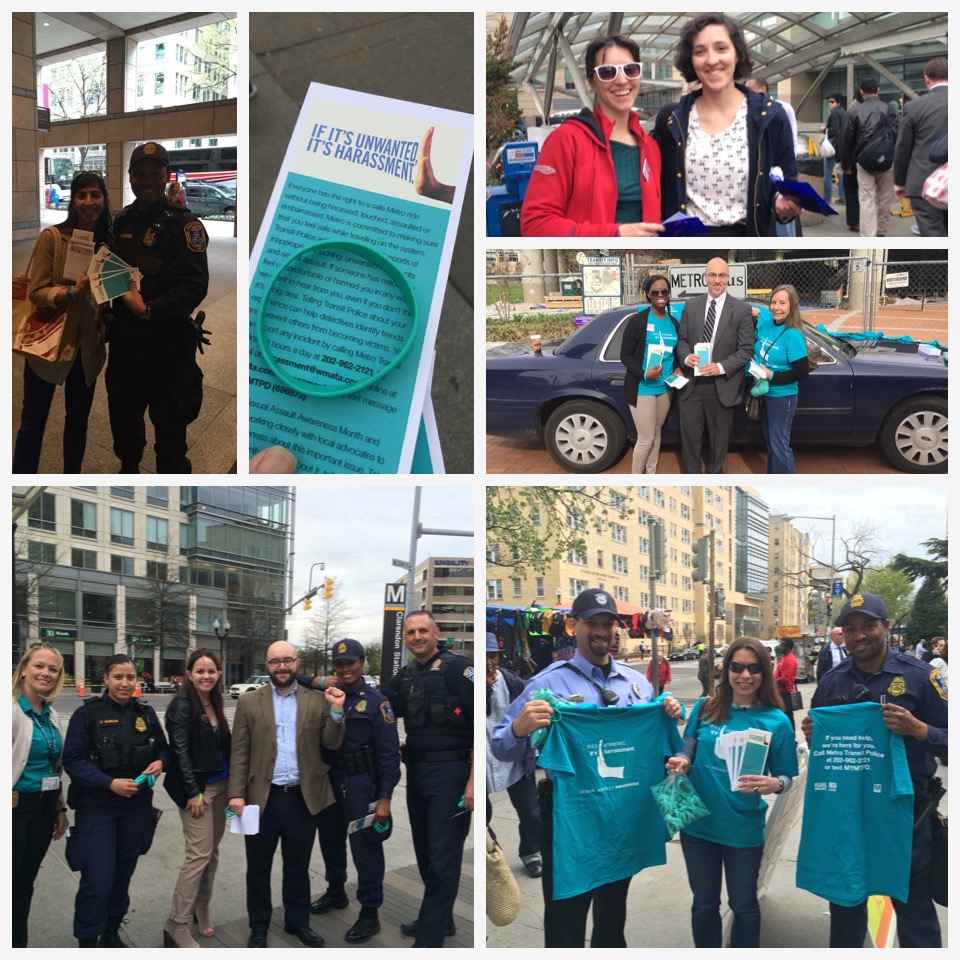
SSH offer several resources, programs and campaigns.
Read about our top 2018 achievements.
Read about our top 2017 achievements.
Read our 2016 annual report.
Read our 2015 annual report.
1. Online Resources: The SSH website is the go-to resource for information about street harassment, including prevalence statistics, tips for dealing with harassers, information about street harassment and the laws, and how to be a male ally. Individuals from more than 30 countries submit their street harassment stories for the SSH blog and relevant news and activism is featured on the blog, too. We’ve had close to 2 million visitors since 2008.
2. Direct Services. In July 2016, Stop Street Harassment launched a national street harassment hotline in partnership with the Rape, Abuse & Incest National Network and Defend Yourself. It is offered 24/7, in Spanish and English, with both phone and online options. Call toll-free: 855-897-5910.
3. International Anti-Street Harassment Week: Each spring, SSH organizes more thousands of people worldwide to take action against street harassment in their community during International Anti-Street Harassment Week. In 2015, there were people in 41 countries and 6 continents that took part. The most recent week was held April 7-13, 2019.
4. Correspondents Program: Up to 15 correspondents from around the world contribute monthly articles about street harassment in their communities. The correspondents term lasts four months. [2019 – on hiatus.]
5. Conducting National Research: SSH has led three national studies (2014, 2018 and 2019). In 2018 and 2019, SSH joined partners in releasing national studies on all forms of sexual harassment and assault. In 2014, SSH conducted the largest nationally representative study on street harassment in the United States. To supplement the 2,000-person survey, 10 focus groups were conducted with under-represented groups.
6. Toolkits: SSH provides resources for people who want to take community action. We also offer a groundbreaking toolkit, released in Dec. 2013, called Know Your Rights: Street Harassment and the Law.
7. Washington, D.C. Activism: SSH is based in the Washington, D.C.-area and has led or co-led various initiatives there. For example, along with Collective Action for Safe Spaces, SSH is part of a task force that works with the Washington Metropolitan Area Transit Authority on addressing sexual harassment on the Metro trains and buses. The most recent update was a second wave of PSAs at every Metro station in spring 2015. In December 2015, two SSH board members testified at the first-ever DC city council hearing on street harassment.
8. Books: Founder Holly Kearl wrote some of the only books on the subject including Stop Street Harassment: Making Public Places Safe and Welcoming for Women (Praeger, 2010) and Stop Global Street Harassment: Growing Activism Around the World (Praeger, 2015).
9. Stopping Companies that Trivialize Street Harassment: Street harassment is a normalized experience in our society and one contributor to that is companies that portray street harassment as a joke, compliment, or an “okay” experience. SSH runs an on-going list of offending companies and works with community members to get companies to drop ads and change offensive language. We’ve had six successes so far.
